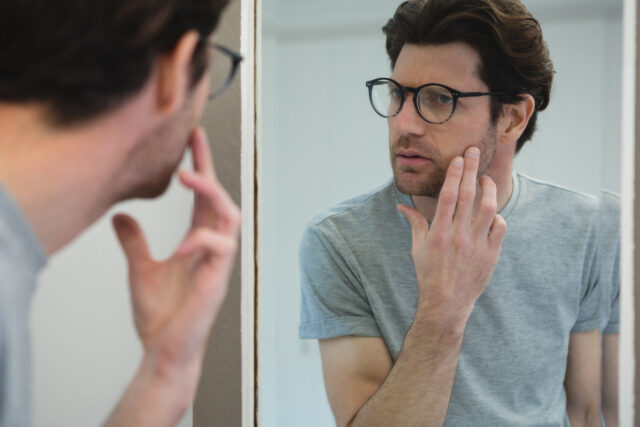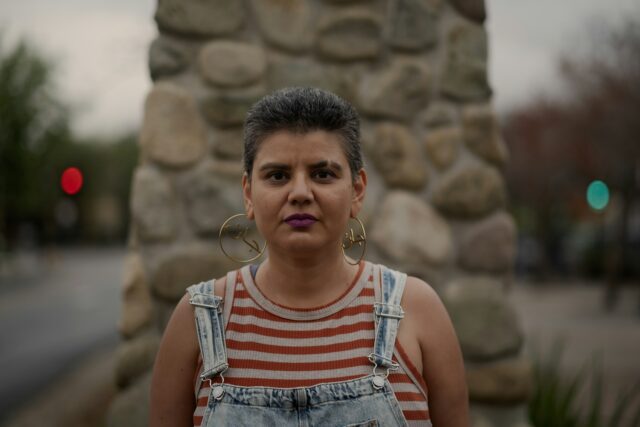We all have those moments where we doubt ourselves, question our abilities, and feel a little insecure.

It’s a natural part of being human. But sometimes, those feelings of insecurity can become more persistent and start to impact our lives. So, how do you know if you’re struggling with insecurity? Here are some signs that might indicate you lack self-confidence.
1. You constantly compare yourself to other people.

It’s easy to get caught in the comparison trap, especially in the age of social media. If you find yourself constantly scrolling through other people’s highlight reels and feeling inadequate, it’s a red flag. Remember, everyone has their own unique journey, and comparing yourself to others only leads to unnecessary self-doubt. Focus on your own progress and celebrate your accomplishments.
2. You have a hard time accepting compliments.
 Source: Unsplash
Source: Unsplash When someone gives you a genuine compliment, do you brush it off or downplay your achievements? If so, it could be a sign of insecurity. Instead of accepting praise graciously, you might deflect or even feel uncomfortable with the attention. Try to embrace compliments and acknowledge your own worthiness. Recognise that you deserve to be recognised for your positive qualities.
3. You’re afraid of failure or rejection.
 Source: Unsplash
Source: Unsplash Fear can be a powerful motivator, but when it becomes paralysing, it can hold you back from taking risks and pursuing your goals. If you constantly avoid challenges or new experiences because you’re afraid of failing or being rejected, it’s a sign that you might lack self-confidence. Remember, everyone experiences setbacks and disappointments, but it’s how we learn and grow. Don’t let fear dictate your life.
4. You need constant validation and approval from people.
 Source: Unsplash
Source: Unsplash Do you rely on the other people’s approval and validation to feel good about yourself? If so, it might indicate a lack of self-confidence. While it’s natural to want to be liked and appreciated, your self-worth should come from within, not from external sources. Focus on building your self-esteem and recognising your own value, independent of what anyone else thinks.
5. You apologise excessively.
 Source: Unsplash
Source: Unsplash Do you find yourself saying “I’m sorry” even when you haven’t done anything wrong? Over-apologising can be a sign of insecurity. It might stem from a feeling that you’re not good enough or that you’re constantly inconveniencing everyone. Learn to assert yourself and apologise only when it’s truly warranted. Remember, you are entitled to take up space and express yourself without feeling the need to apologise for it.
6. You struggle with negative self-talk.

The way you talk to yourself matters. If you constantly criticise yourself, put yourself down, or focus on your flaws, it can erode your self-confidence. Pay attention to your inner dialogue and challenge negative thoughts. Replace self-criticism with self-compassion and focus on your strengths and positive qualities.
7. You have difficulty making decisions.

Indecisiveness can be a sign of insecurity. If you second-guess yourself, fear making the wrong choice, or rely heavily on other people’s opinions, it might be due to a lack of self-trust. Work on building your confidence in your own judgment and learn to trust your instincts. Remember, there’s no such thing as a perfect decision, and it’s okay to make mistakes.
8. You are overly sensitive to criticism.

While constructive criticism can be helpful for growth, being overly sensitive to it can be a sign of insecurity. If you take every critique personally, feel defensive, or ruminate on negative feedback, it might be because you lack self-confidence. Try to develop a thicker skin and learn to differentiate between constructive feedback and personal attacks. Use criticism as an opportunity for growth, not as a reason to doubt yourself.
9. You have trouble saying no.

Do you find it difficult to say no, even when you’re overwhelmed or don’t have the time or energy? This might be a sign of insecurity. You might fear disappointing people, or worry about being considered unhelpful. Remember, it’s okay to set boundaries and prioritise your own needs. Saying no doesn’t make you selfish; it means you’re taking care of yourself.
10. You have a fear of missing out (FOMO).
 Source: Unsplash
Source: Unsplash If you constantly feel like you’re missing out on something better, it could be a sign of insecurity. You might feel pressured to attend every social event or constantly check social media for fear of being left out. This can lead to feelings of inadequacy and dissatisfaction. Remember, it’s okay to miss out on some things. Focus on what truly matters to you and prioritise your own happiness.
11. You strive for perfection.
 Source: Unsplash
Source: Unsplash While striving for excellence is admirable, the pursuit of perfection can be a sign of insecurity. If you set unrealistically high standards for yourself and feel devastated by even minor mistakes, it might be due to a lack of self-acceptance. Learn to embrace your imperfections and recognise that it’s okay to be human. Focus on progress, not perfection.
12. You have difficulty accepting constructive criticism.
 Source: Unsplash
Source: Unsplash While no one enjoys being criticised, it’s an essential part of growth and learning. If you react defensively to feedback, dismiss it outright, or take it as a personal attack, it might be a sign of insecurity. Try to see criticism as an opportunity for improvement, not a reflection of your worth. Listen to feedback with an open mind and use it to become a better version of yourself.
13. You dwell on past mistakes.
 Source: Unsplash
Source: Unsplash Everyone makes mistakes, but if you constantly dwell on past failures or regrets, it can be a sign of insecurity. You might replay negative experiences in your head, criticise yourself for past actions, or feel ashamed of who you were. Remember, the past is the past, and you can’t change it. Learn from your mistakes, forgive yourself, and focus on moving forward.
14. You’re afraid to speak up or share your ideas.
 Source: Unsplash
Source: Unsplash If you hold back from expressing your thoughts or opinions for fear of judgment or ridicule, it could be a sign of insecurity. You might underestimate your own knowledge or feel like your ideas aren’t valuable. Remember, your voice matters, and you have something unique to offer. Don’t be afraid to speak up and share your perspective. You might be surprised at how much you have to contribute.
15. You’re afraid to be yourself.
 Source: Unsplash
Source: Unsplash The most significant sign of insecurity is the fear of being yourself. If you constantly try to fit in, please people, or hide your true self, it might be because you lack self-acceptance. Embrace your quirks, passions, and unique qualities. Don’t be afraid to stand out and be different. The world needs your authentic self.




